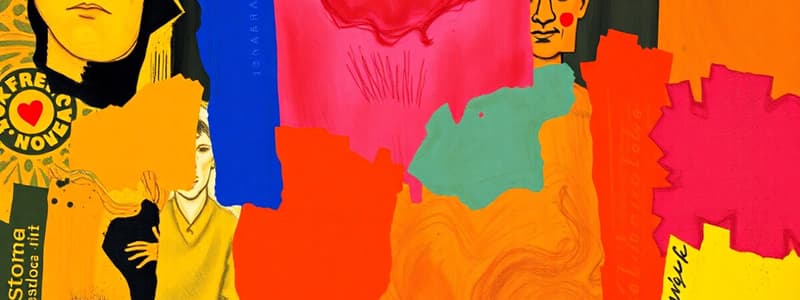Podcast
Questions and Answers
What justification does the elephant provide for occupying the hut in 'Gentlemen of the Jungle'?
What justification does the elephant provide for occupying the hut in 'Gentlemen of the Jungle'?
- It claims ownership of the land.
- It believes it is entitled to the space. (correct)
- It was crowded and needed shelter.
- It seeks revenge on the other animals.
What is the focus of the school boy's experience in the poem 'The School Boy'?
What is the focus of the school boy's experience in the poem 'The School Boy'?
- His excitement for school vacations.
- The friendships he makes at school.
- His joy in learning new subjects.
- The burdensome nature of structured education. (correct)
What caused Mara to lose his teeth in 'Around A Medicinal Creeper'?
What caused Mara to lose his teeth in 'Around A Medicinal Creeper'?
- An accident while playing.
- An encounter with a wild animal.
- A fight with another child.
- The influence of herbs he chewed. (correct)
What was the embarrassing experience of the narrator at the restaurant in 'Oru Manushyan'?
What was the embarrassing experience of the narrator at the restaurant in 'Oru Manushyan'?
Why does Babar Ali believe education is man's true religion?
Why does Babar Ali believe education is man's true religion?
Flashcards are hidden until you start studying
Study Notes
"Gentlemen of the Jungle"
- The elephant rationalizes occupying the hut by claiming a superior status over the man, arguing that strength justifies its actions.
- The scenario illustrates themes of power dynamics and territoriality in human-animal relationships.
"The School Boy"
- The school boy experiences confinement and suppression, feeling stifled by the rigid school environment.
- He longs for the freedom of nature and expresses a desire to be outside, depicting the contrast between joy and the pressures of formal education.
"Around A Medicinal Creeper"
- Mara loses his teeth due to a series of poor choices influenced by peer pressure, showcasing the consequences of youthful folly.
- The loss symbolizes a coming-of-age experience, highlighting themes of regret and learning from mistakes.
"Oru Manushyan"
- The narrator faces embarrassment in a restaurant when he is mistaken for a waiter, leading to an awkward encounter with customers.
- This experience underscores social expectations and the misunderstandings that can arise in everyday situations.
"If I Was a Tree"
- The speaker expresses a longing for simplicity and connection with nature by wishing to be a tree.
- This desire reflects themes of stability, wisdom, and the ability to flourish in one's environment.
"Mone Madness"
- The poet illustrates collective madness through chaotic imagery and societal behaviors, highlighting how individual irrationality can manifest in groups.
- The poem critiques societal norms and invites reflection on the absurdities of human nature.
Babar Ali's School Initiative
- Babar Ali starts his own school to provide education to underprivileged children, motivated by a passion for learning and education equity.
- His initiative represents grassroots activism and the transformative power of knowledge.
"Watchman of the Lake"
- Mara protects the lake by implementing sustainable practices and educating others on environmental conservation.
- In the play, Mara's depiction of the Goddess symbolizes reverence for nature and the spiritual connection humans have with their environment.
Education as True Religion
- Babar Ali demonstrates that education is man's true religion by illustrating its power to change lives and uplift communities.
- His efforts to establish a school emphasize the belief that knowledge fosters growth, equality, and enlightenment.
Studying That Suits You
Use AI to generate personalized quizzes and flashcards to suit your learning preferences.




